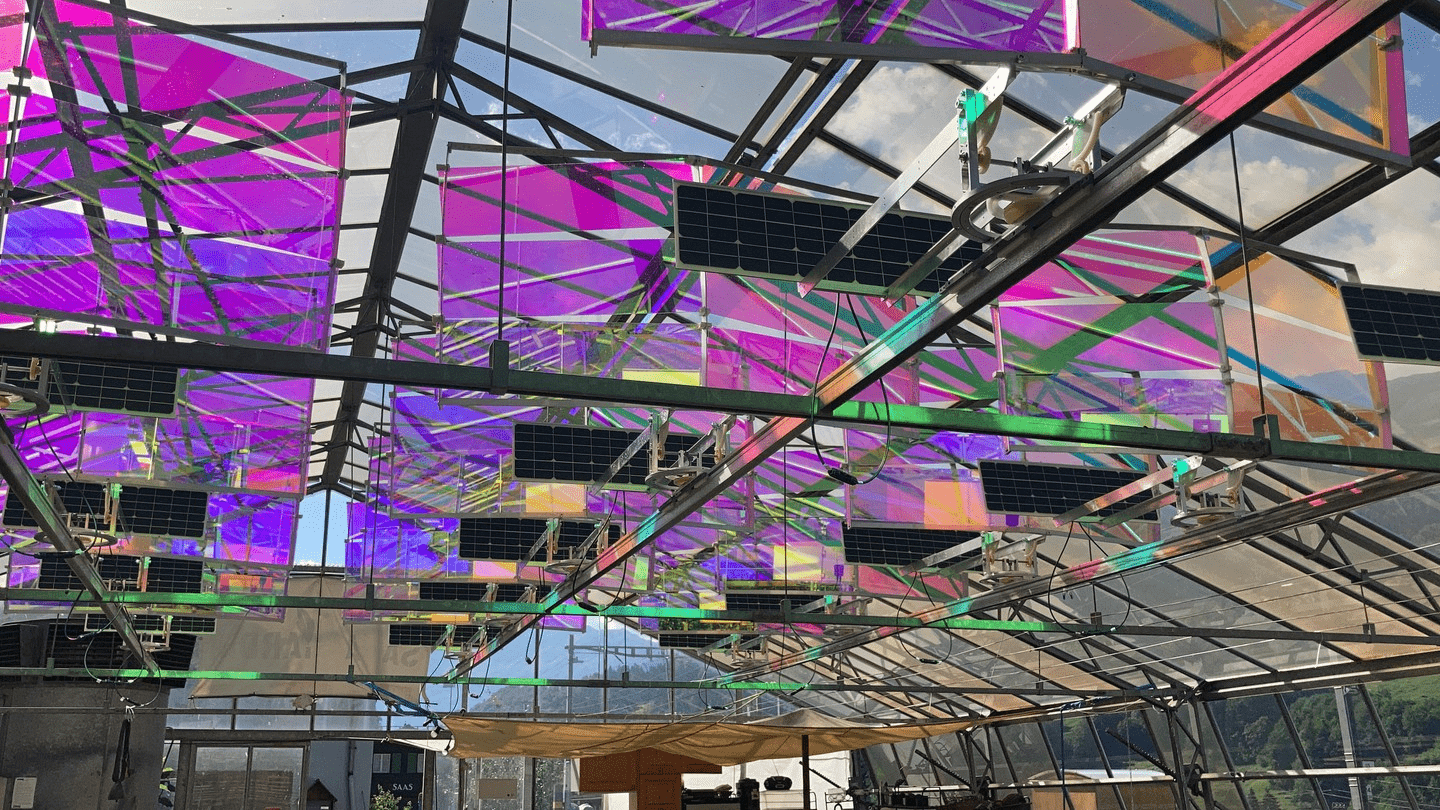Jan 3, 2023
5 Companies Who Shaped the Future of Ag in 2022

Color-optimized solar panels gather energy in an indoor farm. Credit: Voltiris.
Editor’s Note: The following list details some of the many companies involved in the controlled environment agriculture (CEA) sector. This list is not exhaustive but rather meant to illustrate the variety of ways in which suppliers are creatively meeting the needs of their customers.
Written by: Sarah Jordan
January 3, 2022
Each year, new innovations emerge in the ag sector that transform the field. As our climate patterns become more unpredictable and extreme, these innovators offer a glimpse into a more resilient future shaped by tech-enabled ag.
So, here are 5 companies who we think are revolutionizing the sector:

A worker inspects microgreens in an indoor farm.. Credit: Soli Organic.
This soil-based indoor grower out of Virginia’s Shenandoah Valley aims to make organic food more accessible, affordable, and sustainable. Typically, produce farmed indoors in hydroponic or aeroponic systems is not allowed to be labeled as organic. However, since Soli grows in soil, their products are certified organic.
Soli’s dedication to sustainability is evident in their closed-loop system which recycles unused water and nutrients to be used again. With seven farms already operating across the United States and more in the works, Soli has a bright future in the sector.

Orbillion’s cell-cultured meat is created through precision fermentation of animal cells. Credit: Meat + Poultry.
As a producer of cultured meats, Orbillion was the first company in the world to offer a tasting of premium cultured meats, in this case, Wagyu beef, elk, and lamb. They are hoping to produce at scale by 2025, so long as they gain approval from regulatory bodies, such as the FDA. Orbillion claims to “move from sample to finished product 18x faster and 10x cheaper than other cell-cultured meat companies”, which accounts for their speedy timeline.
They create this meat through precision fermentation. Using cells biopsied from living animals, they isolate certain strains of cells and ferment them in a nutrient-rich solution inside of a bioreactor. Currently, Orbillion is focusing on products with a consistency similar to ground meats, but in the future, they hope to be able to master the process to provide a more structured product in the future, such as steaks.

Wakan Tech uses drones to pollinate date palms and perform other agricultural tasks. Credit: WIPO.
This Omani startup utilizes drones to help farmers with various agricultural processes. One of their current projects is date palm pollination. There are various challenges in the pollination process, and many trees have to be pollinated by hand. As a result, Wakan Tech has begun experimenting with pollination via drone. This innovative solution can help farmers attain higher yields with less labor.
The drones have numerous other applications in ag, such as pesticide application, seeding fields, surveying plant health, and taking a tree census of the local area. In 2019, they even used their drones to help sanitize public areas in Muscat to prevent the spread of COVID-19.

Helaina employees collaborating in the lab. Credit: Helaina.
Founded in 2019 by NYU adjunct professor of food science Lauren Katz, Helaina aims to create an infant formula with bioactive proteins identical to those found in breastmilk. She is able to achieve this through fermentation, similar to how cultured meats are produced. Katz was featured in the 2022 Forbes 30 under 30 list, and for good reason.
Katz’s innovation in the sector is especially relevant as we see mass shortages of infant formula in the United States. Plus, the proteins found in breastmilk can build up immunity in babies. Her product can help countless parents provide the nutrition their children need without having to substitute with traditional formulas.

Voltiris’s solar panels can help power greenhouses. Credit: Serpentine Ventures.
This Swiss company produces color-optimized solar modules for greenhouses which allow the necessary light wavelengths to reach the plant and store the unnecessary wavelengths for energy usage in the facility. They are able to optimize their system to work with various crop types.
The extensive research on greenhouses and artificial lighting used in indoor farms led Voltiris to their solution. Their modules primarily store green light, which is typically reflected back into the atmosphere by plants. This energy is then available for use within the greenhouse for other tasks, meaning they are able to harness the power of the sun for more than just plant growth.
